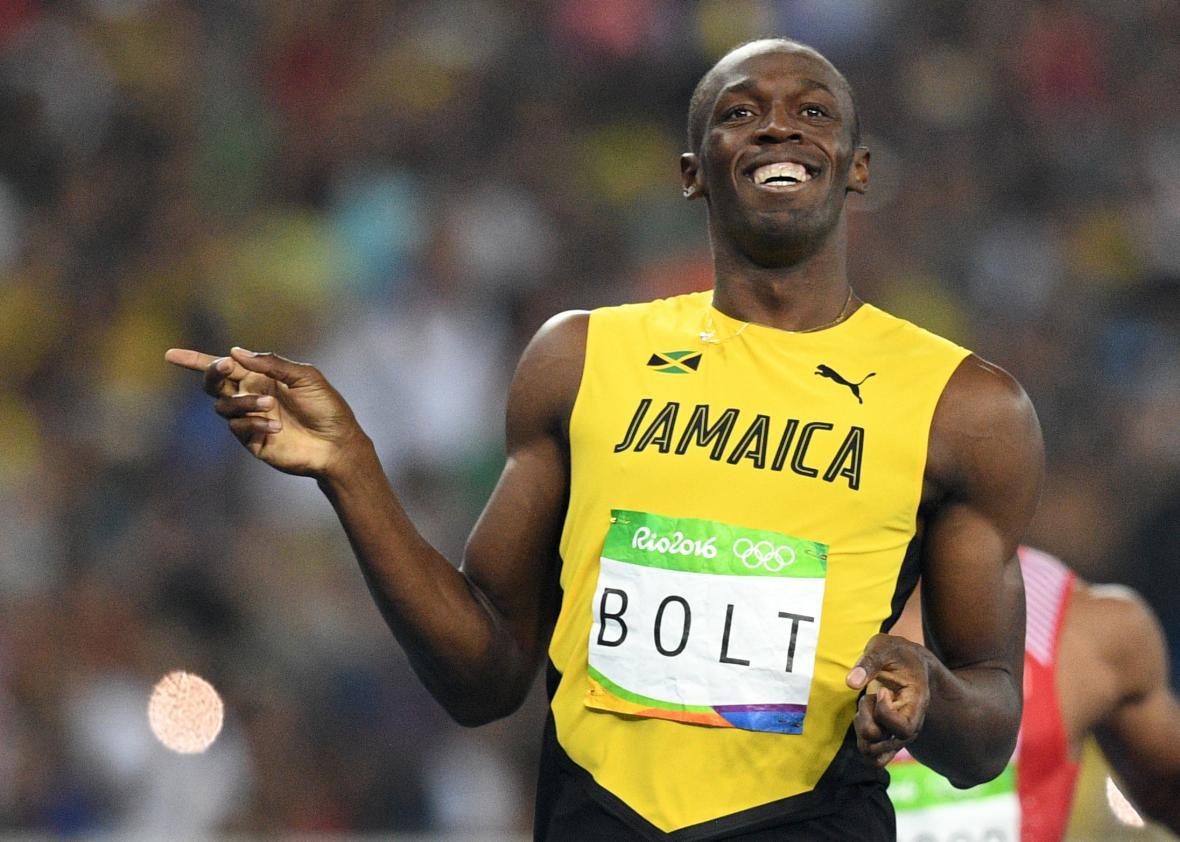David Epstein, a writer for ProPublica and the author of the book The Sports Gene, told a version of this story on Thursday’s edition of Slate’s Hang Up and Listen Olympics Extra. An adapted transcript of the audio recording is below, and you can listen to Epstein’s essay by clicking on the player beneath this paragraph and fast-forwarding to the 22:32 mark.
Once again, Jamaican sprinters are putting on a show at the Olympics. Their four gold medals so far have come in some of the marquee sprinting events: the men’s 100 meters—Usain Bolt of course—the 110-meter high hurdles, and the women’s 100 and 200 meters. You might be wondering where a tiny island nation of 2.7 million people is finding all of this talent.
I visited Jamaica a few years ago to learn about its sprint development pipeline, and I came away feeling like it’s pretty similar to the football development program in the United States. The difference is that in Jamaica, high school track is equivalent to college football in the U.S. The Jamaican national high school track and field championship, known on the island as “Champs,” is the crowning entertainment event of the year. Thirty thousand fans pack the national stadium over several days, and all of the pros and Olympic medalists are there cheering on their old high schools. The competitors are divided into age groups, unlike in American high schools, where everyone is in the same competitive pool. Young runners who do well in the sprints can earn instant local celebrity. When I was there, I visited a Puma store that was selling shirts branded with some of the best high school track teams. And just as in American college football, the Jamaican high school track system comes with boosters, people who keep an eye out at local sports days at elementary and middle schools, looking for any barefoot 12-year-olds who might win races in the grass, and hoping to persuade them to come to a favored school.
If a kid shows speed, it’s pretty hard for him or her to get out of sprinting in Jamaica. Even Usain Bolt was intent on becoming a cricketer until he was steered in the sprinting direction. Jamaican high school track also has some of the other features of American college football. On one of the days of Champs, I visited the warmup track to talk to coaches of local high schools. They kept telling me that in recruiting, they weren’t allowed to give families refrigerators anymore. I hadn’t even asked, so I can only assume there had been some kind of refrigerator-giving recruiting scandal.
One oddity about sprinting in Jamaica is that up until about 2008, pro sprinting wasn’t really popular at all. Sure, Jamaicans cheered their team at the Olympics, but really all the focus was on youth track. Pro races played to almost empty stadiums, while national championships for 8-years-olds could draw thousands of fans.
In 2008, the rivalry between Bolt and Asafa Powell started to draw more attention to pro meets, and a prominent Jamaican coach started demanding that meets for younger runners also allow opportunities for pros to compete in full stadiums. In addition, two really strong training groups coalesced in Jamaica. That meant Jamaica’s best sprinters didn’t have to go to U.S. college teams anymore, which often over-raced them in an effort to get points for the team, which was not necessarily the best development plan for Olympic hopefuls.
Of course, one other key to Jamaica’s success is that Usain Bolt happened to be born there. But that was a real stroke of luck for him, too. In what other country in the world other than Jamaica would a 6-foot-5 teenager with blazing speed be pointed toward the track instead of a football field or basketball court? Maybe the Bahamas, maybe Trinidad, but not most places around the world. Jamaica’s lucky to have Bolt. And Bolt’s lucky to have Jamaica.
